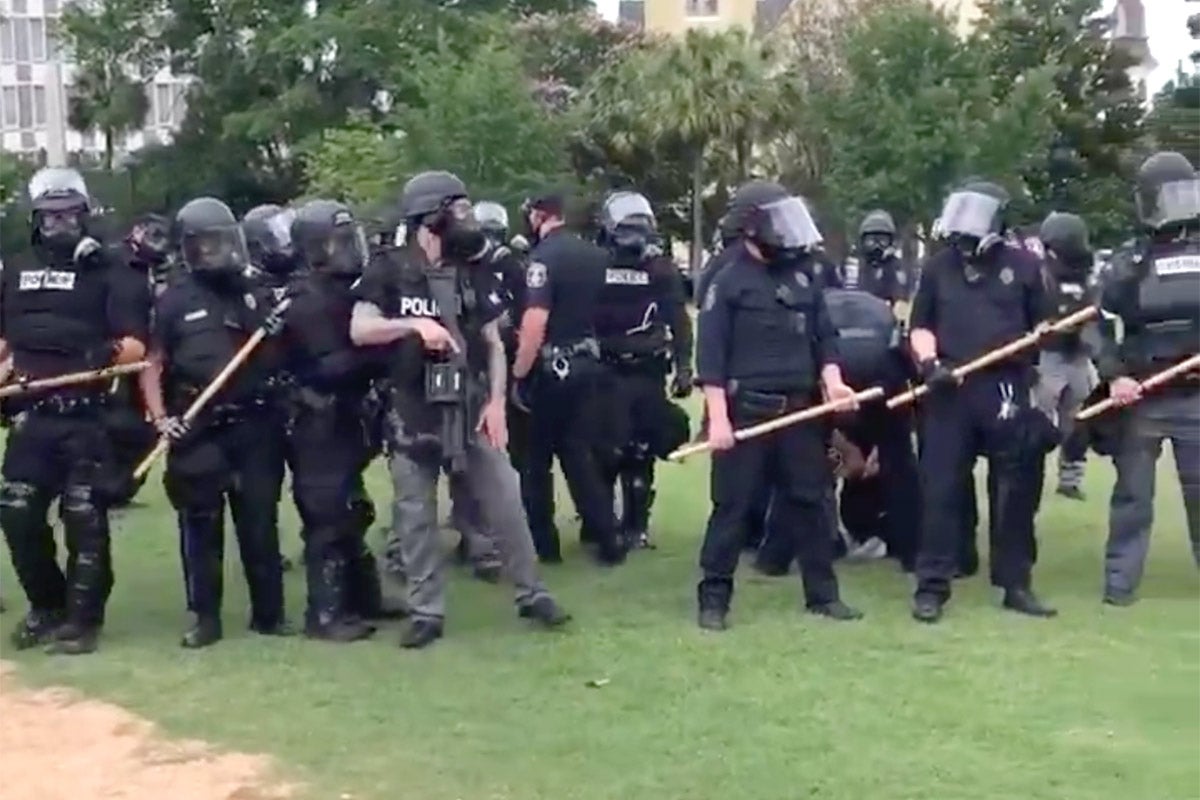Charleston, South Carolina, on Sunday:
Kansas City on Monday:
Oakland, California, on Tuesday:
Although there isn’t any video that would show whether or not they mouthed off, a group of 14 high school students sitting on a lawn in the Birmingham, Alabama, suburb of Hoover were also arrested by a crowd of 50 police officers in another half-absurd, half-tragic incident on Tuesday.
The Charleston Post and Courier’s coverage of the first incident explains how police officers justified the arrest of 23-year-old Givionne Jordan Jr.: The protest he was a part of was “tense” (the paper’s word, not the police’s), and protesters been told to disperse (even though they were in a public park before curfew). Jordan was therefore booked for violating a police order. The teenagers in Alabama were technically in violation of a 7 p.m. curfew that had been put in place after police made disorderly conduct arrests at earlier, larger protests and windows were smashed at two stores in an upscale mall.
This logic is reminiscent of the retroactive Fox News and Trump 2020 campaign justifications for the tear gassing of a nonviolent crowd on D.C.’s H Street on Monday night. Fox’s Ed Henry argued that the use of force was necessary because there had been a fire at the Episcopal church on the street the night before; the campaign’s statement pointed to “stashes of weapons like glass bottles, baseball bats, and metal poles” that were allegedly “found nearby,” though it didn’t say how close “nearby” means or when the weapons (or weaponlike objects) were found. The idea seems to be that if the police perceive violence, or the threat thereof, at some place and some time in a given area, it justifies every action against a protester anywhere in that area indefinitely, a power that can be used at officers’ discretion against individuals who are saying things that make them uncomfortable but not against anyone else around them.
Or sometimes the justification can be even thinner: A police spokesman said the individual in the Kansas City video above was taken into custody because he stepped into a street.
Be careful not to use any streets (?) out there, readers, or you might get mobbed and dragged away by the police too!
